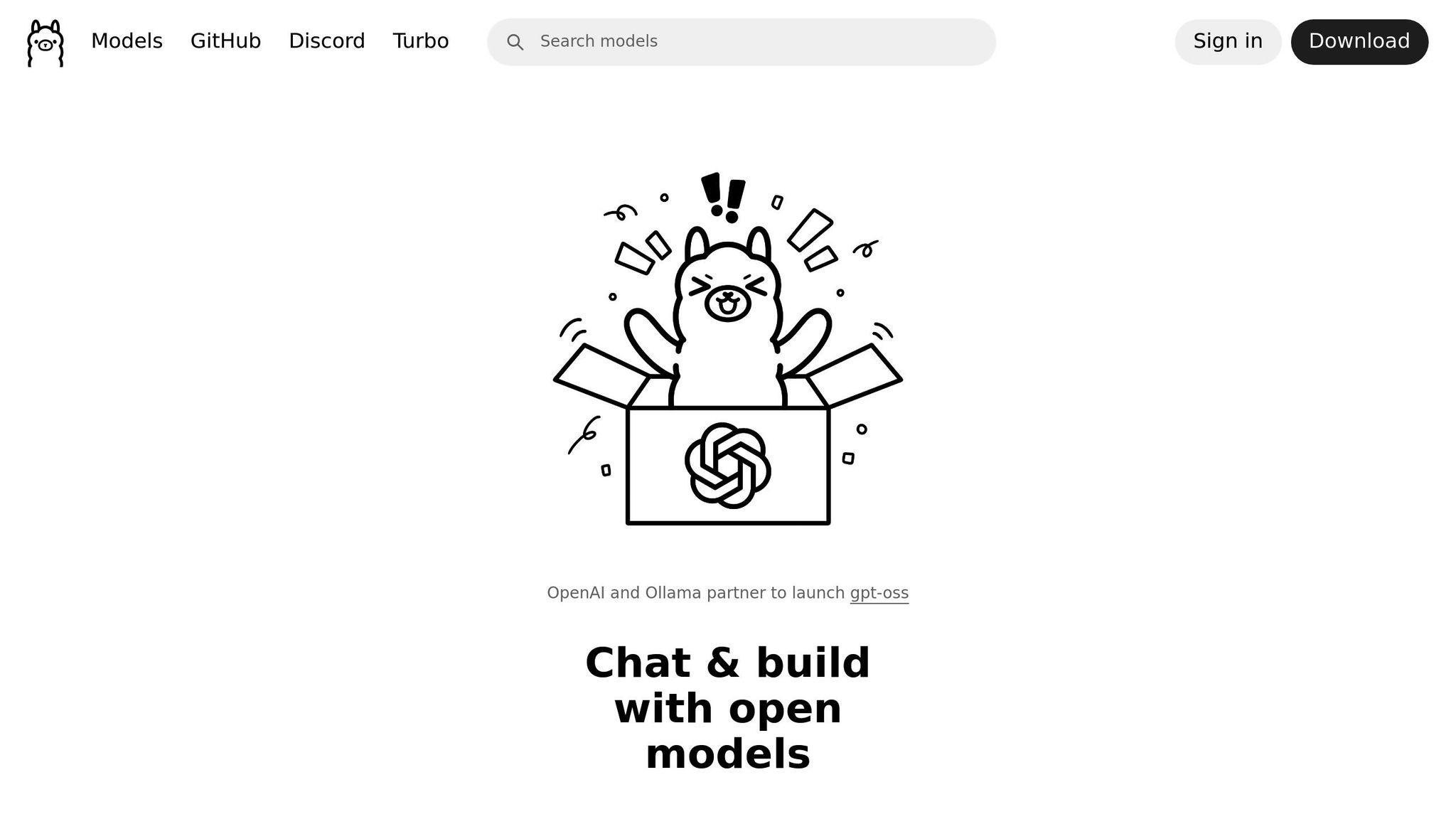How to Host Ollama AI Models on Dedicated Servers
5 min read - September 8, 2025

Learn how to host Ollama AI models on dedicated servers to maintain data security, ensure scalability, and enhance performance.
How to Host Ollama AI Models on Dedicated Servers
Hosting your own large language models (LLMs) can provide unparalleled control, flexibility, and security. But how do you balance the complexities of self-hosting with scalability and usability? This article dissects the insights shared in the video "How to Host Ollama AI Models on Dedicated Servers", offering a practical and transformative analysis for IT professionals, business owners, and developers interested in deploying AI models using the open-source tool, Ollama.
Why Self-Host AI Models?
Modern AI applications, particularly those involving sensitive data, require robust privacy and control. Relying on external providers like OpenAI has its risks, including data exposure and limited customization options. For organizations concerned about security or looking to train and fine-tune proprietary models, self-hosting provides a compelling solution. However, the challenges of scalability, GPU resource management, and deployment complexity must be addressed efficiently.
Enter Ollama, a versatile tool designed to simplify hosting your own LLMs, making it easier to manage models, interact with APIs, and maintain control over your data.
What Is Ollama and How Does It Work?

Ollama is an open-source server application that allows users to host and manage AI models locally or on dedicated servers. It streamlines the process of interacting with LLMs, enabling developers to deploy, query, and scale AI models with ease. Here’s a breakdown of its functionality:
- Server-Oriented Model Hosting: Ollama acts as a server that interfaces with GPUs to load, manage, and run AI models.
- Model Management: If a queried model isn’t locally available, the server downloads it from a repository and stores it in a model cache.
- API Support: Ollama offers an API endpoint for interaction, allowing services to query models or generate predictions.
- GPU Utilization: It optimizes GPU resources, ensuring efficient model loading and inference without additional overhead.
In essence, Ollama empowers developers to host AI systems securely while maintaining scalability, whether on-premises or via cloud providers.
Setting Up Ollama on a Dedicated Server: Key Steps
The video highlights a real-world example of deploying Ollama on a dedicated server equipped with GPUs. Below, we outline the essentials of setting up your own Ollama server:
1. Choose Your Hosting Environment
- On-Premises Servers: Ideal for maximum security and control, particularly for sensitive data. For example, KDAB’s setup involves a Linux-based server with Nvidia GPUs hosted in their office data center.
- Cloud Hosting Options: For scalability, cloud platforms offer the flexibility to rent virtual machines (VMs) with GPU capabilities. This might be a better choice for larger-scale deployments.
2. Install and Configure Ollama
-
Setting Up the Server: Start by launching Ollama on a server with proper GPU access. Use commands to designate the IP address and port for the service. The foundational command looks like:
ollama serve --host <IP_ADDRESS> --port <PORT> -
Deploy Models: Use the
ollama pullcommand to download models from a publicly available repository. For example:ollama pull theqtcompany/codellama-13b-QMLThe server stores these models locally in a model cache for streamlined inference.
3. Fine-Tune or Customize Models
- Ollama supports fine-tuned models like CodeLlama, optimized for specific tasks such as code completion. As demonstrated in the video, KDAB uses such fine-tuned models for their internal AI applications.
4. Integrate with Applications
-
Ollama’s API endpoints make it easy to integrate hosted models into applications like Qt AI Assistant for various use cases including code completion and chat interfaces.
-
Example API endpoint configuration:
http://<SERVER_IP>:<PORT>/api/generate
5. Debug and Validate Performance
- Monitoring server logs is essential to ensure that requests are processed correctly. Debugging tools like TCP servers can help validate API communication and model behavior.
Scalability Options: From Local to Cloud-Based Deployments
One of the standout topics covered in the video is the scalability of self-hosting. While a local GPU server can work for small teams, scaling up requires careful consideration:
- Cloud Providers: Platforms like AWS and Google Cloud allow you to rent VMs with GPUs, providing flexibility without long-term hardware investments.
- Dedicated Inference Providers: For large-scale deployments, specialized services handle model hosting and inference, charging based on usage (e.g., tokens generated).
This approach ensures scalability while maintaining a middle ground between local self-hosting and relinquishing full control to external providers. FDC also offers GPU Servers, especially suitable for high bandwidth requirements.
Addressing Security and Trust Concerns
Security is a recurring theme in the video. The level of control you have over your data depends on the hosting solution you choose. Here’s how to assess the options:
- Fully Local Deployment: Maximum privacy, as everything is hosted on your infrastructure.
- Encrypted Communication to VMs: Cloud-hosted VMs provide secure access but require trust in the service provider’s terms.
- Dedicated Data Centers: While less private than local hosting, reputable providers ensure data protection through robust agreements and policies.
The critical takeaway? Trust is required at some level for any non-local solution, but terms of service and encryption protocols mitigate risks.
Advanced Use Cases for Ollama
Ollama isn’t just for deploying pre-trained models; it’s a powerful tool for various AI tasks:
- Custom AI Integration: Developers can validate models using Ollama’s chat mode before embedding them in applications.
- Prototyping and Testing: The server’s lightweight setup is ideal for experimenting with AI behaviors and verifying model interactions.
- Fine-Tuned Deployments: Teams can tailor open-source models to their specific needs, improving performance for domain-specific tasks.
Key Takeaways
- Ollama Simplifies Self-Hosting: This open-source tool provides a straightforward way to deploy, manage, and interact with AI models.
- Scalability Is Flexible: From local GPU servers to cloud-based VMs, Ollama supports a range of hosting options.
- Security Matters: Self-hosting ensures data privacy, but encrypted cloud solutions offer scalable alternatives with trusted terms of service.
- Use Cases Extend Beyond Code Completion: Ollama enables custom AI integrations, making it a versatile tool for developers and enterprises.
- Debugging Requires Careful Setup: Validating API connections and refining configurations can be challenging but necessary for smooth operations.
Final Thoughts
Hosting your own AI models might seem daunting, but tools like Ollama bridge the gap between complexity and usability. Whether you're a small team exploring LLMs or an enterprise scaling deployment, self-hosting empowers you to retain control, optimize resources, and unlock new potential for AI-assisted development.
By following best practices, leveraging scalable infrastructure, and addressing security concerns, you can deploy robust AI solutions tailored to your needs. With Ollama, the future of self-hosted AI models is within reach for developers and businesses alike.
Source: "How to set up AI Models With Ollama: Dedicated Server Setup & Integration Demo" - KDAB, YouTube, Aug 21, 2025 - https://www.youtube.com/watch?v=HDwMuSIoHXY

How to install and use Redis on a VPS
Learn how to install and configure Redis on a VPS for optimal performance, security, and management in your applications.
9 min read - January 7, 2026
Monitoring your Dedicated server or VPS, what are the options in 2025?
12 min read - November 28, 2025

Have questions or need a custom solution?
Flexible options
Global reach
Instant deployment
Flexible options
Global reach
Instant deployment